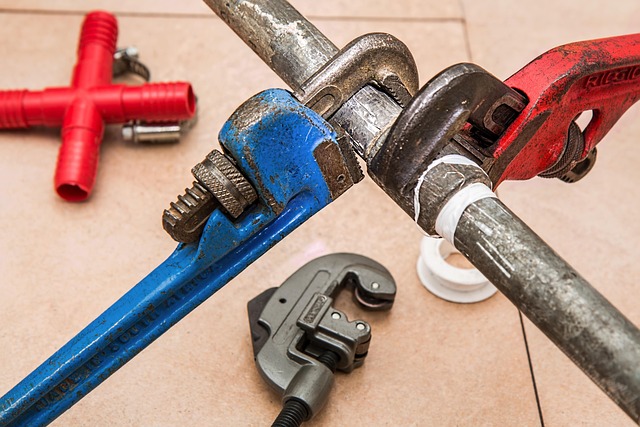Before engaging foundation repair services, homeowners should understand their structure's needs. Regular inspections catch early signs of cracks, unevenness, and water damage. Knowledge of common issues and repair methods aids in informed decisions. Affordable options include visual to advanced tool assessments. Preparation for inspection streamlines the process. Reports detail current conditions, guiding repair choices. Cost-effective solutions like underpinning, piering, and cement injection prevent future problems. Proactive maintenance between inspections promotes foundation health. Choosing experienced professionals ensures accurate diagnoses and tailored solutions for Residential Foundation Repair.
“Discover the secrets to maintaining a sturdy residential foundation with our comprehensive guide to affordable inspections. Understanding the intricacies of residential foundation repair is key to ensuring your home’s structural integrity. We’ll explore the benefits of regular checks, common signs demanding attention, and various cost-effective inspection services.
Learn how to prepare for an expert evaluation, interpret reports, and implement solutions. From identifying issues early to choosing the right professionals, this article empowers homeowners with knowledge on navigating residential foundation repair needs.”
Understanding Residential Foundation Repair Needs

Understanding your residential foundation repair needs is a crucial first step before engaging any professional services. Different types of structures have distinct foundational requirements, and identifying specific issues like cracks, unevenness, or settling is essential for effective repairs. Regular visual inspections can help homeowners catch potential problems early on, preventing more costly and extensive renovations later.
Knowing the scope of work involved in residential foundation repair allows property owners to make informed decisions about budgeting and choosing qualified contractors. It’s important to research common causes of foundation issues in your area and understand the various repair methods available to address them effectively and affordably.
Benefits of Regular Foundation Inspections

Regular foundation inspections are a crucial aspect of home maintenance, offering numerous benefits for homeowners. By scheduling routine checks, residents can proactively address potential issues before they escalate into costly repairs. These inspections provide a comprehensive overview of the foundation’s health, allowing for early detection of problems such as cracks, settlement, or water damage.
Such proactive measures are essential in mitigating the need for extensive and expensive residential foundation repair later on. With timely identification, minor adjustments or repairs can be made, ensuring the structural integrity of the home. This not only saves financial resources but also maintains the value of the property by preventing further deterioration that could impact its marketability.
Common Signs Requiring Foundation Repairs

Foundation issues can often go unnoticed, but there are several common signs that indicate the need for residential foundation repair. One of the most visible indicators is uneven or cracked flooring. This could manifest as doors and windows sticking, walls with noticeable gaps or bulges, or floors that are not level. These issues suggest a problem with the structural integrity of the foundation, which may require immediate attention from professionals specializing in residential foundation repair.
Another sign to watch out for is visible cracks on exterior surfaces like walls, chimneys, or foundations themselves. Even small cracks can expand over time, compromising the stability of the entire structure. Settling or shifting soil due to poor drainage or nearby construction projects might also contribute to these issues. Leaning or bulging walls, sticking doors and windows, and water seepage are additional red flags that should prompt an inspection by a foundation repair expert.
Types of Affordable Foundation Inspection Services

When it comes to affordable foundation inspection services, there are several options available for homeowners seeking to ensure their property’s structural integrity. One common type is the visual inspection, where an expert assesses the exterior and interior walls, floors, and any visible signs of damage or cracks. This non-invasive method provides a quick overview but may not detect deeper issues.
For more comprehensive assessments, structural engineers offer advanced testing methods such as moisture meters to identify potential water damage, piezometers for soil pressure analysis, and radar technology to locate voids or settled areas. These detailed residential foundation repair evaluations are crucial in identifying problems that might require professional Residential Foundation Repair services.
How to Prepare for a Foundation Inspection

Before a foundation inspection, there are several steps homeowners can take to ensure the process goes smoothly and provides accurate results. Start by clearing any debris or obstacles around the exterior of your home, especially near the foundation. This allows inspectors easy access to all areas they need to examine. Next, locate and gather important documents related to your property, such as purchase records, permits for any previous repairs, and insurance policies. Having these on hand can save time and provide valuable context during the inspection.
Additionally, it’s beneficial to be prepared to discuss any noticeable issues or concerns you’ve observed with your home’s foundation. Take note of cracks, unevenness, or signs of water damage. While professionals are equipped to assess these, providing detailed information can help in understanding the scope and potential causes. Remember, a thorough preparation process aids in ensuring that the inspection is comprehensive and yields actionable insights for any required residential foundation repair work.
Interpreting Inspection Reports and Recommendations

After a foundation inspection, homeowners are presented with an in-depth report detailing the current state of their property’s base. This document is a valuable tool for understanding potential issues and guiding decisions regarding residential foundation repair. The report typically includes photographs and detailed descriptions of observed problems, such as cracks, unevenness, or signs of water damage.
Interpretation of this data requires a basic understanding of common foundation concerns. For instance, small cracks may be normal but could also indicate underlying problems. Recommend actions often include scheduling timely repairs for minor issues to prevent escalation. Major structural damages might necessitate the involvement of professional foundation repair services for comprehensive solutions tailored to residential foundation repair needs.
Cost-Effective Solutions for Foundation Issues

When it comes to addressing foundation issues, affordability shouldn’t compromise quality or effectiveness. Many residential foundation repair solutions offer cost-effective options that can extend the life of your home and prevent more serious problems down the line. From structural repairs using advanced techniques like underpinning and piering to less invasive methods like hydraulic cement injection, there’s a solution for every budget.
These cost-effective strategies not only fix existing foundation problems but also provide long-lasting stability. Homeowners can choose from a range of options tailored to their specific needs and pockets, ensuring that their homes remain secure and valuable investments. By opting for affordable residential foundation repair, folks can avoid costly renovations or even the prospect of relocating.
Preventive Measures for Future Foundation Health

Regular maintenance and early detection are key to ensuring the longevity and stability of any foundation. Homeowners can take several preventive measures to promote their residential foundation repair health between professional inspections. One simple yet effective step is to monitor for any signs of moisture intrusion, such as cracks in the walls or floor, which could indicate underlying structural issues.
Regularly checking for settlement cracks, uneven floors, or doors that stick can also help identify potential problems early on. Keeping gutters clean and ensuring proper drainage away from the foundation can prevent water damage, a leading cause of foundation deterioration. Additionally, maintaining adequate air circulation around the foundation by trimming nearby vegetation can mitigate moisture buildup, promoting a healthier environment for your home’s structural integrity.
Choosing the Right Foundation Repair Professionals

When considering residential foundation repair, choosing the right professionals is paramount. Look for a company with extensive experience in various types of foundation issues, as this ensures they can accurately diagnose and address your specific problem. Reputable firms often have licensed and insured experts who adhere to industry standards and best practices, providing peace of mind during the repair process.
Check references, read online reviews, and inquire about their methodology to ensure they employ effective and affordable solutions. Opting for professionals who specialize in both repair and prevention strategies can be beneficial, as it may save costs in the long run. Efficient communication, transparency, and a thorough understanding of your concerns are key indicators of a reliable foundation repair service.
